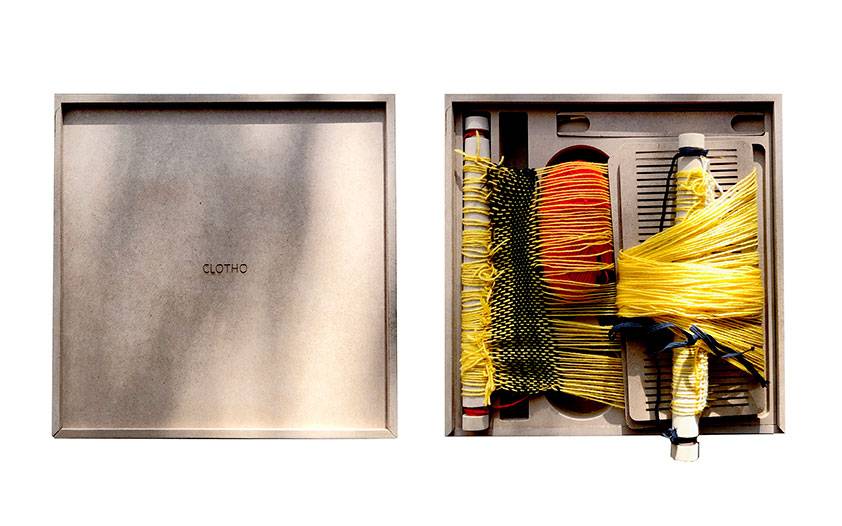 Research
Research

Subject
Factory of Stories: Weaving counter-narratives for Vale do Ave.
First and second supervisors
Abstract
This practice-based research investigates how weaving, writing and architecture might provide modes to reveal, narrate and renegotiate social and spatial (hi)stories affected by processes of industrial transformation within the built environment. The thesis begins from the context of Vale do Ave located in the northwest of Portugal, a landscape which is rooted in a long history of textile manufacturing (Alves, 1999, 2002), and whose urban realm endures under the shadow of cyclical economic textile crises (Pereira, 2012). It then focuses on Coelima – a textile factory located at Vale do Ave, founded in 1922, and which has been under a progressive process of dismantlement since 1991 – asking how the architect might explore and develop hand weaving as a ‘poethical’ practice (Retallack, 2004) to critically respond to the material and immaterial transition, and loss experienced in the area.
Drawing on the theoretical and historical relationships that exist between weaving and place, design, and language, the thesis proposes to explore weaving as a creative form of communicative practice. It develops weaving as a site-specific project that critically engages with Coelima’s written and oral (hi)stories of industrialisation and de-industrialisation, and the effects they have on social and spatial relations. The research tests how procedures and tools common to hand-weaving, writing, information technology and architecture – such as ‘code’, ‘storage’, ‘loom’, and ‘decode’ – might become micro-political practices of storytelling and design, while forging additional connections with related fields in art, communication and architecture (Albers, 1957; Bakhtin, 1973; Semper, 2011). Methodologically, the thesis is developed through collaboration with Coelima’s former textile workers and other interdisciplinary practitioners. The project uses archival and oral history research, critical ethnography, and collaborative time-based experiments and performances to create new knowledge for the future regeneration of liminal sites of textile production in Vale do Ave and elsewhere.
Biography
Fernando P. Ferreira is an architect, artist and researcher, based between Porto (Portugal) and London (UK). His practice interacts with activism, art and urban research, gender theories, storytelling, and experimental practices.
Fernando has collaborated with architectural practices based in Porto (Portugal) and London (UK) and has been teaching and researching urban studies at EAUM – School of Architecture at University of Minho. Fernando is the co-founder and director of Space Transcribers – a Portuguese non-profit organisation that works through social and spatial practices of communication and mediation – where he has been leading socially-engaged architectural and artistic research projects, curating exhibitions and editing publications in partnership with Portuguese public institutions.
Links
This research is funded by FCT – Fundação para a Ciência e a Tecnologia.
Image: ‘CLOTHO’ box with backstrap loom (wood and cotton, 2019). Designed and photographed by Fernando P. Ferreira.
 Close
Close

